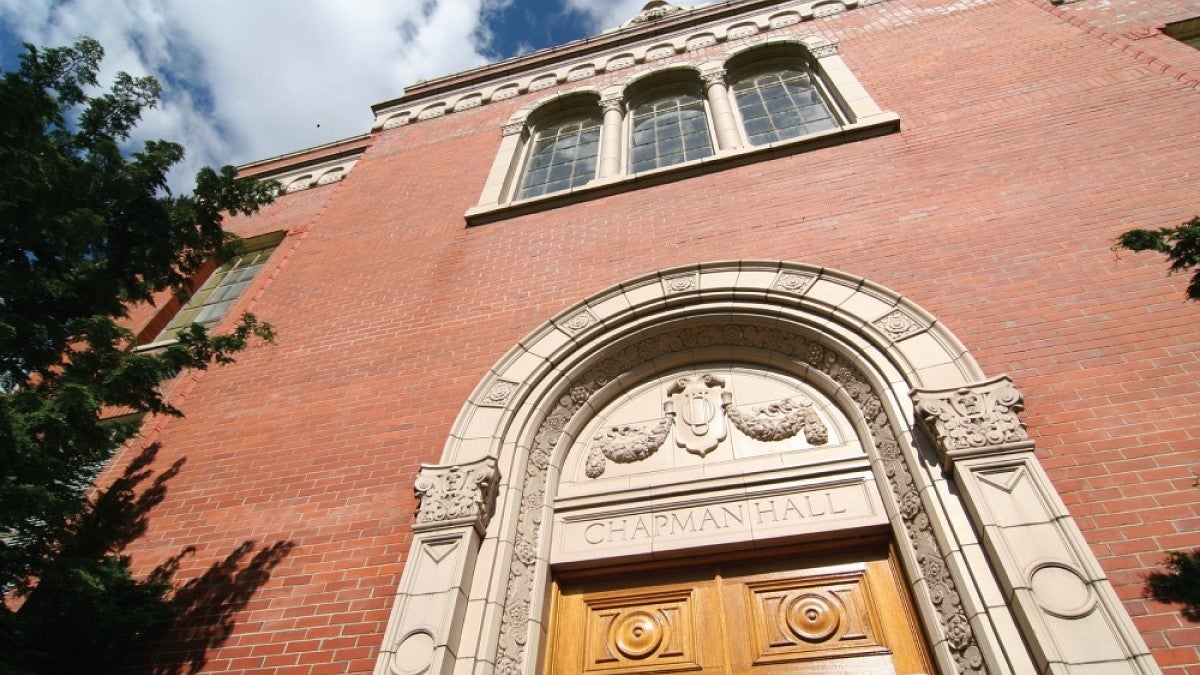The Clark Honors College is seeking applications from faculty members — tenured, tenure-related and career — from across all colleges and fields at the UO to serve four- and eight-year terms as faculty-in-residence beginning in the 2019-20 academic year.
The new CHC faculty-in-residence model allows faculty members with a primary affiliation in any of the UO's schools or colleges to move some or all of their teaching and service into the honors college while remaining a part of their existing research home.
"The first year of the new faculty model was a tremendous success," said Gabe Paquette, Clark Honors College dean. "The honors college welcomed new faculty-in-residence colleagues from law, psychology and anthropology. Their arrival has enhanced the disciplinary range, richness and diversity of our course offerings."
Terms of four or eight years are available, depending on how long the faculty member is prepared to commit. The four-year option is for those who would like to see if the appointment fits with their priorities, while the eight-year option is intended for those who are ready to commit to serving and teaching in the college for a longer time.
Applicants are expected to demonstrate excellence in teaching, defined by the Teaching Engagement Program as inclusive, engaged and research-led.
"It's been wonderful to find a second intellectual home in the Clark Honors College," said Dare Baldwin, one of last year's faculty-in-residence appointments from the Department of Psychology. "As one who relishes small-course settings and interdisciplinary pursuits, being a part of the CHC is a delight."
Faculty-in-residence are expected to devote at least half of their teaching and service to the honors college. The college will work directly with department heads to coordinate teaching reassignments as needed if department schedules for the 2019-20 academic year have already been determined.
Along with Baldwin, anthropologist Daphne Gallagher is a member of the first cohort of faculty-in-residence.
"At the CHC, I’ve been able to closely align my teaching with my research," she said, adding that she has also benefited from multi-level support for innovative teaching practices and the engaged interdisciplinary community.
The new faculty-in-residence model enables the honors college to achieve several of its goals, including making the college more accessible to a wider range of students and draw a diverse community of faculty members.
"The faculty's passion for teaching and mentorship is inspiring," Paquette said. "They are helping us become an incubator for pedagogical innovation across campus."
The college hopes to build closer partnerships between other academic units on campus and increase curricular breadth and course offerings across the disciplines represented at the UO.
“It’s important for the Clark Honors College to draw on teaching excellence from across our university,” said Scott Pratt, executive vice provost for academic affairs and a professor of philosophy. “Giving faculty a chance to spend time with the Clark Honors College is a priority for the provost’s office and will support a more diverse learning experience for students in the college.”
Members of the honor college’s core faculty and faculty-in-residence teach and advise students, serve on multiple faculty committees and contribute to the college community. The precise allocation of teaching and service to the college will be arranged between the faculty member, the college and the faculty member’s unit.
Review of applications will begin April 7. Contact the honors college deans’ office at chcdeansoffice@uoregon.edu or 541-346-4749 with any questions.


